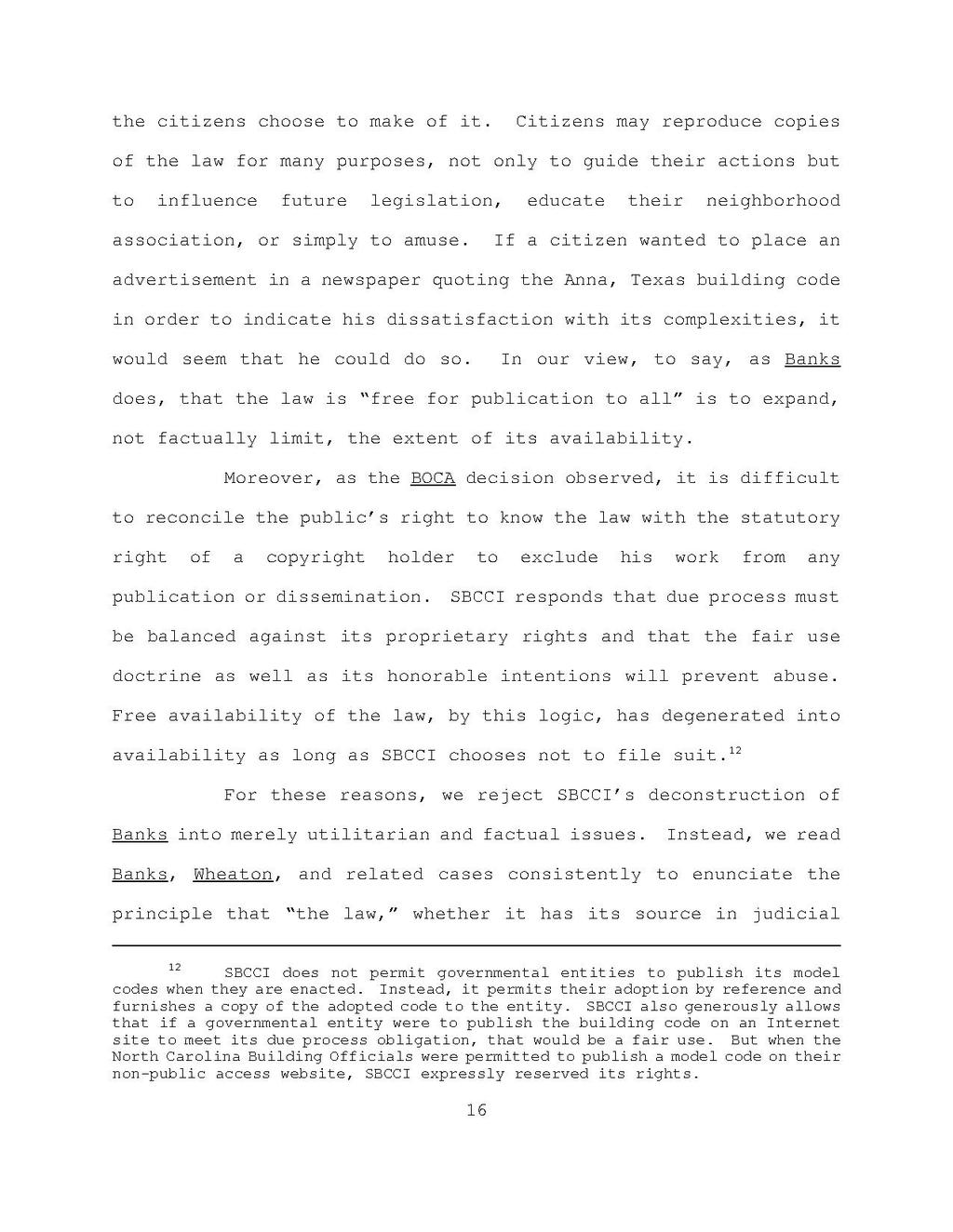the citizens choose to make of it. Citizens may reproduce copies of the law for many purposes, not only to guide their actions but to influence future legislation, educate their neighborhood association, or simply to amuse. If a citizen wanted to place an advertisement in a newspaper quoting the Anna, Texas building code in order to indicate his dissatisfaction with its complexities, it would seem that he could do so. In our view, to say, as Banks does, that the law is "free for publication to all" is to expand, not factually limit, the extent of its availability.
Moreover, as the BOCA decision observed, it is difficult to reconcile the public's right to know the law with the statutory right of a copyright holder to exclude his work from any publication or dissemination. SBCCI responds that due process must be balanced against its proprietary rights and that the fair use doctrine as well as its honorable intentions will prevent abuse. Free availability of the law, by this logic, has degenerated into availability as long as SBCCI chooses not to file suit.[1]
For these reasons, we reject SBCCI's deconstruction of Banks into merely utilitarian and factual issues. Instead, we read Banks, Wheaton, and related cases consistently to enunciate the principle that "the law," whether it has its source in judicial
- ↑ SBCCI does not permit governmental entities to publish its model codes when they are enacted. Instead, it permits their adoption by reference and furnishes a copy of the adopted code to the entity. SBCCI also generously allows that if a governmental entity were to publish the building code on an Internet site to meet its due process obligation, that would be a fair use. But when the North Carolina Building Officials were permitted to publish a model code on their non-public access website, SBCCI expressly reserved its rights.
16
